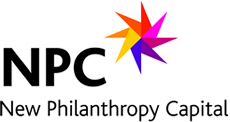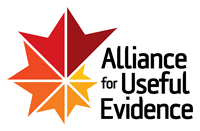Becoming a social impact analyst – a career you hadn’t thought about?
Have you heard of a social impact analyst? If yes, I’m assuming you’re in the minority probably already in a charity, business or organisation working around social impact. If not don’t worry, as I say you’re in the majority!
As a member of The Social a young professionals network in London and the Manager of the Social Impact Analysts Association (SIAA) I’m always keen to discover how much students and graduates know about this field and whether they would ever consider it as a career option. This curiosity led to SIAA and The Social running an exploratory event ‘Social Impact: The new sexy phrase of the social sector’ in London on March 21st. It was an informal discussion event with four young professionals sharing their experiences of how we can seek to analyse and understand the social impact or social value of an organisation.
So briefly what is social impact? My general definition is the social effects or changes that happen as a result of an activity, project, programme or policy. The ‘impact’ can be positive or negative, intended or unintended, or a combination of these. Having said this, the event showed that there are as yet no clear definitions and universally agreed terms. Evaluators, investors, economists, accountants, charity workers, social entrepreneurs and mainstream entrepreneurs will all use different jargon. Although the confusion around jargon is frustrating, as with many complex social phenomena there are often no clear answers.
What was clear from the event was that all the guest speakers had one thing in common, an underlying passion and commitment to the use of evidence and research to help all kinds of organisations to make better strategic decisions to create greater positive social impact. All the speakers admirably took a two hour grilling from our attendees. Highlights included Natasha Malpani from Big Society Capital shared insights from the world’s first ever social investment bank looking to get more private investment in social inventions. Sian Whyte from Citizen’s Advice explained to us how they are trying to assess the entire social value of their work with volunteers, users and staff. Harry Hoare discussed the work of Social Finance in developing some of the first Social Impact Bonds for a range of interventions including re-offending. Kireon Kirkland from Nominet Trust talked about what appropriate and proportionate evaluation could look like for start-ups.
Each speaker came from a different background, including the social sciences, politics and science. However all seemed to have a clear interest in both the technical aspects of analysing social impact, through quantitative and qualitative approaches, and understanding social impact to communicate and make change. For this reason I would define all of the speakers as social impact analysts (although they might prefer to label themselves in a different ways!). It was a fascinating room to be in, with a very different atmosphere from many of the events I went to as a student which had an isolated focus on just charity sector or academic perspectives on specific social or environmental issues.
Through SIAA I have seen that this is a quickly developing area with more organisations starting to staff social impact analysts (or similarly named job roles) and the development of more university-level and short training courses. With this in mind I see social impact analysis as a key driver towards developing more socially responsible organisations in the private, public and charity sector. The view that you can only do good through the charity sector is becoming outdated with the scaling of old and new social enterprises and a developing social investment market. Even the recent boycott of Starbucks for not paying their taxes shows that there is movement within society towards more socially responsible business.
We all know just having the right motivations and a good heart doesn’t always lead to positive change. For example my own experiences volunteering overseas showed me that good intentions just aren’t enough, inventions have to be appropriate, context dependent and evidence driven. Asking questions, collecting the evidence and communicating it to leaders of organisations is the role of the social impact analyst.
So the take home message, if you’re looking for a socially responsible career with a research focus…. perhaps consider this one?
SIAA is piloting Start Social Impact is a programme aiming to provide entry level information and opportunities for all those with a professional interest in social impact analysis. Find out more and sign up to their newsletter here or get in touch via [email protected].
The Social is part of the Student Hubs network and organisational members of SIAA.






+44 (0) 20 3111 0735
[email protected]
Follow us on Twitter
Join us on LinkedIn
Join us on Facebook
Our photos on Flickr
Subscribe to our Feed